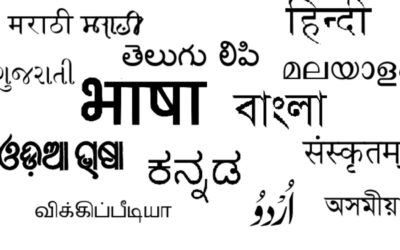On most days, I avoid taking phone calls after 11 pm. No, it’s not that I sleep by 11 but I try to embrace my me-time at the end of a day. The other night, I was interrupted by repeated calls of a friend. Let’s call him Kunal. I was so engrossed in an online thriller series that I decided to ignore those calls initially but then came a WhatsApp text saying, “I’m going to die“. I had to call him back.
I will give some background so that you don’t freak out like I did. Kunal recently went to Nepal for work and had unprotected sex with a local who he met through an online dating app. He says that he was so intrigued by the idea of making out with a stranger that all his agitation got diluted with excitement. Next morning onward, he started thinking what if he got HIV AIDS. Immediately after coming to India, he got tested and now, he is shit scared to collect the reports.
For me, the basic introduction to HIV AIDS happened in an academic way, as the benefit of being a biology student. Human immunodeficiency virus infection and acquired immune deficiency syndrome (HIV/AIDS) is a spectrum of conditions caused by infection with the human immunodeficiency virus (HIV). HIV is spread primarily by unprotected sex (including anal and oral sex), contaminated blood transfusions, hypodermic needles, and from mother to child during pregnancy, delivery, or breastfeeding.
When I started looking online for more information, I found some interesting facts. The first HIV AIDS positive human being found in India was in Chennai 1987. Noorie Saleem had come to meet a doctor, who had her blood test results. Noorie sat in silence looking at the doctor as she was informed that her body contained the deadliest virus known to human: AIDS (the term HIV hadn’t been coined till then). Noorie had six months to live and to plan her exit from this world. Eventually, the virus started spreading across the country and India became third in line to have most HIV positive people.
Coming back to Kunal, the day after receiving his message, I accompanied him to collect test reports. Throughout the journey, I was annoyed by his constant nagging. We reached the clinic and discovered that we’ll have to wait for an hour. Sitting on the sofa, I was looking at the posters on walls and in between, some anxious faces in the other corner of the room.
Meanwhile, a boy came with a bunch of forms and said that if any of us wants to get tested, we will have to fill this form. I took one. The whole idea of getting tested for HIV seemed so thrilling that I didn’t succumb to my internalized stigma. My heartbeat was audible to me and a warm wind circulated around me – not scary but alluring. The excitement lasted until I got into the counseling room after my blood test. There was an elderly lady sitting there who smiled at me professionally. I sat in the small chair and looked around.
She – How old are you?
Me – 24
She – Why are you getting tested? Any instance of having unprotected sex recently?
Me – Well no, actually I came to accompany a friend who is here to receive his reports. Since that was taking time, I thought of getting tested.
She – Ok, so when did you last have sex?
Me – Excuse me!
She (more loudly) – When was the last time you had sex? Should I talk in Marathi?
Me – No, I understood. It’s just that I am a little uncomfortable with these questions.
She – Don’t be. It is a part of the process. I have no personal incentive in knowing about your sex life. (Smiling sarcastically)
I realized that it was required for data filling and there was nothing to worry about. I answered the basic questions without any apprehension anymore. Then, she told me about certain STDs, (Sexually transmitted infection) STIs (Sexually transmitted infections), and possible ways of transmitting STDs such as Condom-less anal sex, Condom-less vaginal sex, Oral sex, Rimming, Cuddling.
According to the CDC (Center for disease control and prevention), Anal sex is the highest-risk sexual behavior for HIV transmission. Vaginal sex has a lower risk, and activities like oral sex, touching, and kissing carry little to no risk for getting or transmitting HIV.
Me – So, what are the possible ways of preventing STDs?
She – Practicing safe sex, for sure. Using condoms, femidoms. Also PEP, PrEP.
Most of these terms were alien for me during that conversation. Not anymore. A femidom is a Female Condom, made of polyurethane, synthetic nitrile, latex. PEP stands for post-exposure prophylaxis. It means taking Antiretroviral medicines (ART) after being potentially exposed to HIV, in order to prevent infection. PEP must be started within 72 hours after a possible exposure to HIV. The sooner you start, the better, as every hour counts. If you’re prescribed PEP, you need to take it once or twice daily for 28 days. It is usually effective in preventing HIV when administered correctly, but not 100%.
Pre-exposure prophylaxis (or PrEP) is when people at very high risk for HIV take HIV medicines daily to lower their chances of getting infected. A combination of two HIV medicines (Tenofovir and Emtricitabine), sold under the name Truvada® (pronounced tru vá duh), is approved for daily use to help prevent an HIV-negative person from getting the disease through a sexual intercourse or injection-drug-using partner who is positive.
Studies have shown that PrEP is highly effective for preventing HIV if it is used as prescribed, although it is much less effective when it is not taken consistently. Daily dose of PrEP reduces the risk of getting HIV from sex, by more than 90%. Among people who inject drugs, it reduces the risk by more than 70%. It can be even lower if you combine PrEP with condoms and other prevention methods.
Contradicting the popular beliefs, it is important to know that HIV is not the end of life. An HIV positive individual who is completely adherent to their treatment can expect to live as long as an HIV negative person.
The conversation with the counselor continued for a while and it stayed with me all the way while coming back home. I realized the importance of safer sex and being conscious of our sexual health without stigmatizing it. Before the next time you sleep with someone, wake up to know the information you need.
By the way, both Kunal and I came out as HIV negatives.




If you had a Unsafe sex with probable HIV positive person night before. Is it possible to have your blood test positive for HIV next morning or one week after or two weeks after or one month after. I don’t think so. you have not mentioned the time period that had passed between the unprotected sex and the blood test
Yes, after having unsafe sex the person should do the blood test after 3 months.
Very informative and also written from an extremely relatable and personal perspective. Thanks for sharing!